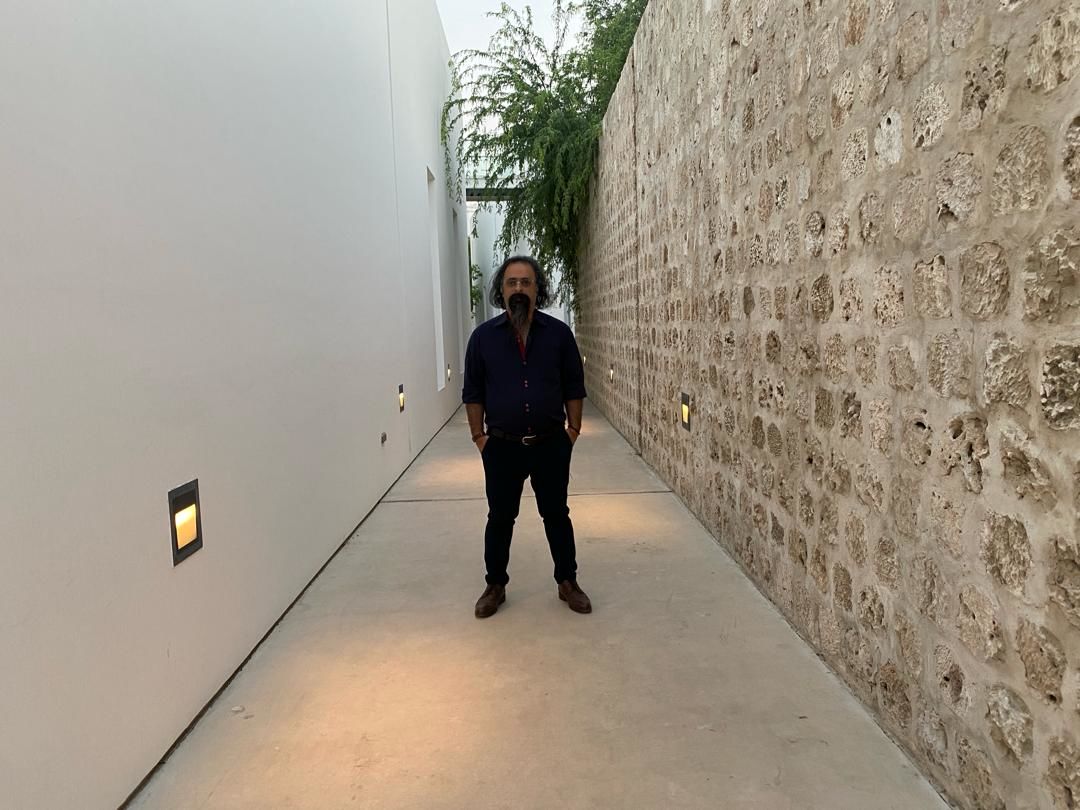Hossein Hashempoor
Hossein Hashempoor: The Middle East's Artists and Art Need Content Creation the Most

The development and continual publication of literature concerning Middle Eastern creative institutions, artists, and artworks serves as the foundation for the region's art advancement and growth.
IranArt : Hossein Hashempoor: Thankfully, the arts of the Middle East have advanced hardware development to an astounding degree.
Some nations, like the United Arab Emirates and Saudi Arabia, have built museums, art towns, and galleries at such an astounding rate in the last ten years that, if this trend continues, they will soon catch up to international standards. An endeavor of this kind is also evident when looking at art fairs, exhibitions, and the development of artistic events. However, creation of content is a crucial missing piece for this intriguing picture to advance.
Art and artists are at the top of the contemporary world, with more words and texts written about them. Simply run a mental thumb check to verify that, over the years, the majority of content creation has been limited to well-known American and European artists who are also at the top of their fields. Because of the overwhelming volume of content generation, artists from other regions of the world are almost invisible.
There is little doubt that the Middle East's artistic output—from classical to contemporary, from artists to works of art, and even individual artists—is experiencing a historical regression in terms of text production, which won't end until this enormous gap is addressed.
In actuality, a number of significant Middle Eastern organizations have recently scheduled the release of well-known art books and catalogs. Nonetheless, it is evident that these publications' production rhythm and volume are out of step with what the modern world requires.
In order to bring about a significant improvement in this regard, it appears that we must act in a contemporary manner and seek solace in the "modern book":
A modern book is defined as having strong, focused, ongoing content creation on the Internet that ranks highly in search engine optimization (SEO) and Google.
Nobody can dispute the book's significance. However, history indicates that books on library shelves eventually decay. Modern books that are accessible to everyone through easy searches and can be read anywhere in the world are essential for the art of the Middle East today.
Numerous texts from artists and their points of view should be available under the new art development plan, and each pertinent piece of art should have at least a few hundred to a couple thousand pages of written analysis published.

Doing the same with regard to themselves and the art community they are associated with should be the goal of museums, institutes, galleries, art directors, collectors, and dealers. We'll see how quickly Middle Eastern art takes on a new and significant face if this act for creating content with a strong sense of purpose spreads throughout the area.
The basis of the Middle Eastern art revival is this kind of cultural activity.
The Middle East art business faces a significant problem in developing content creation, one that calls for significant attention and investment from institutions as well as the artistic community. One way to support the growth and advancement of art and artists in this region and position the Middle East favorably in the international art market is to embrace solutions and establish appropriate platforms.

